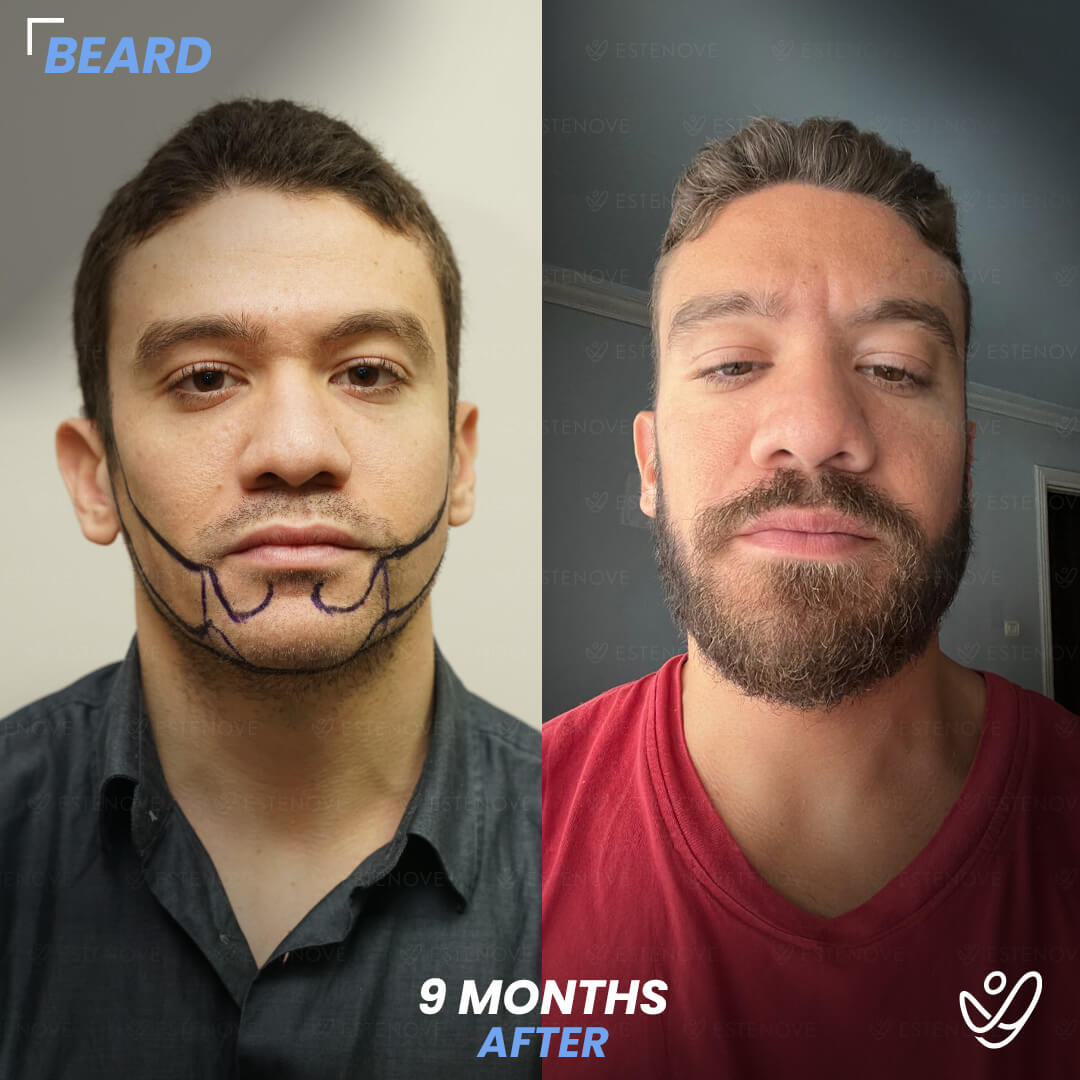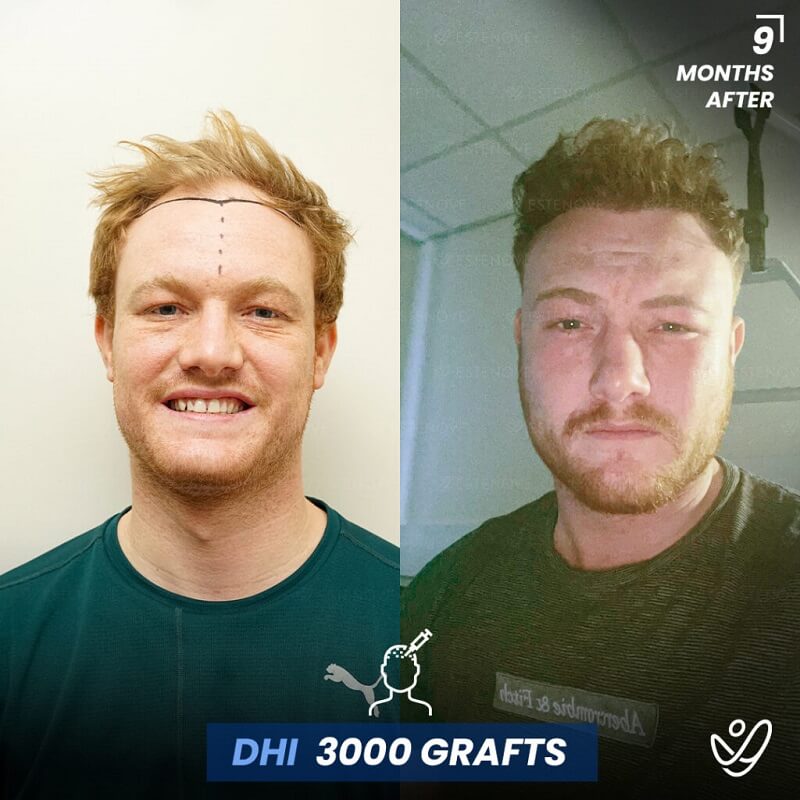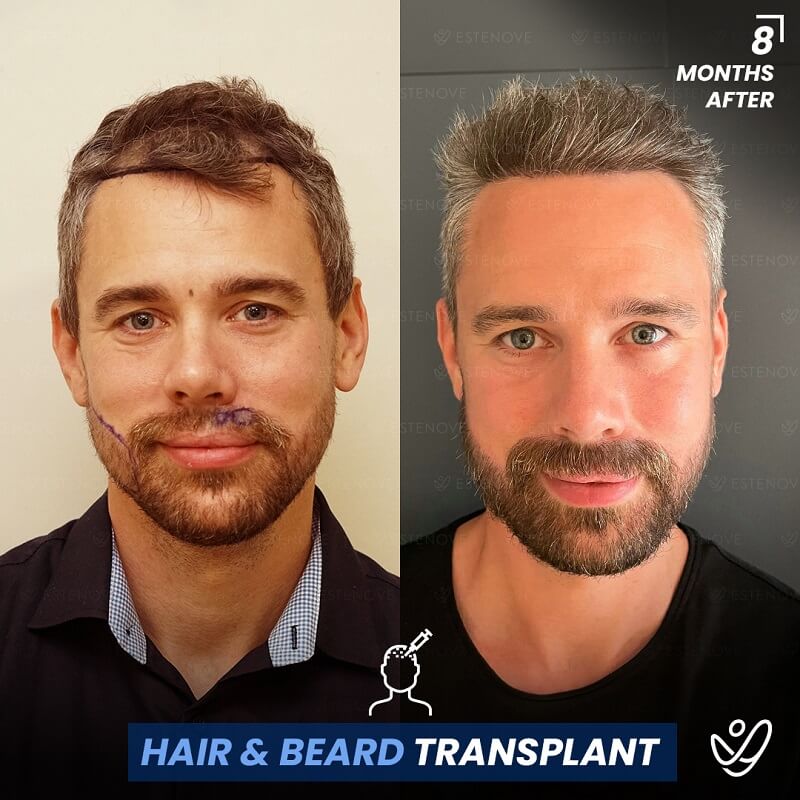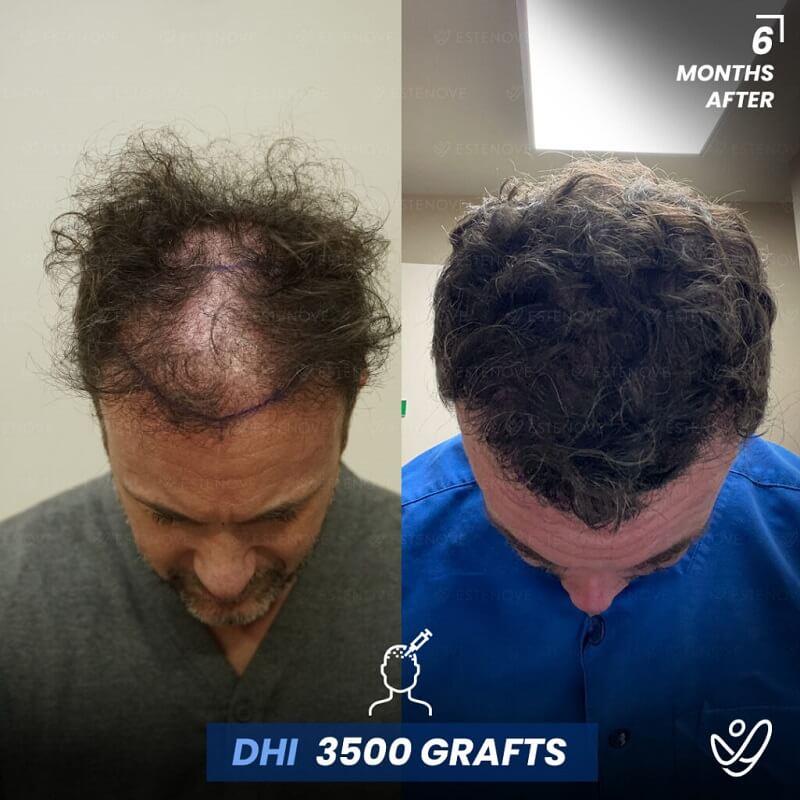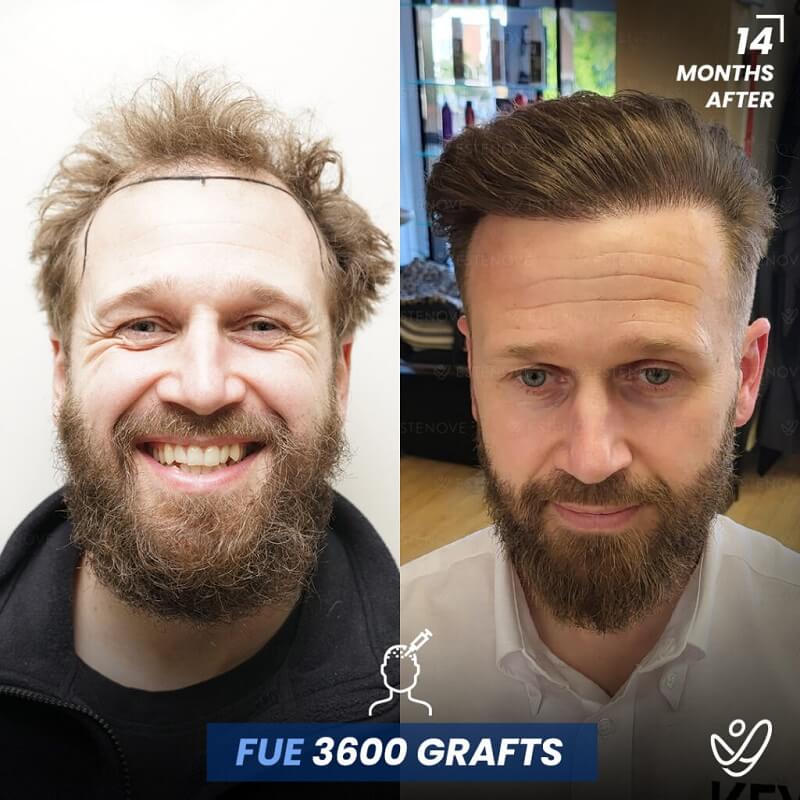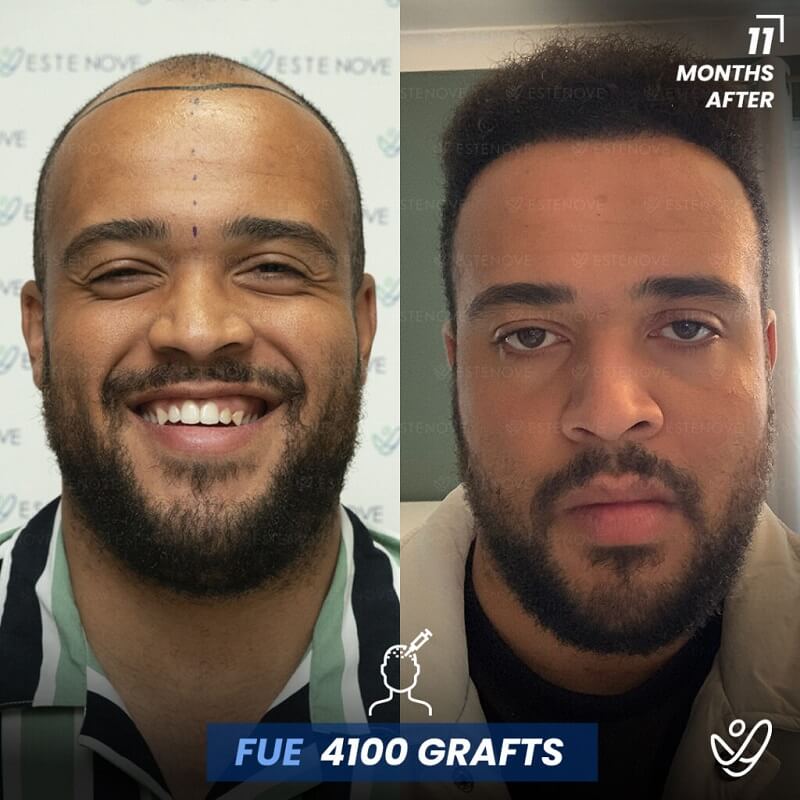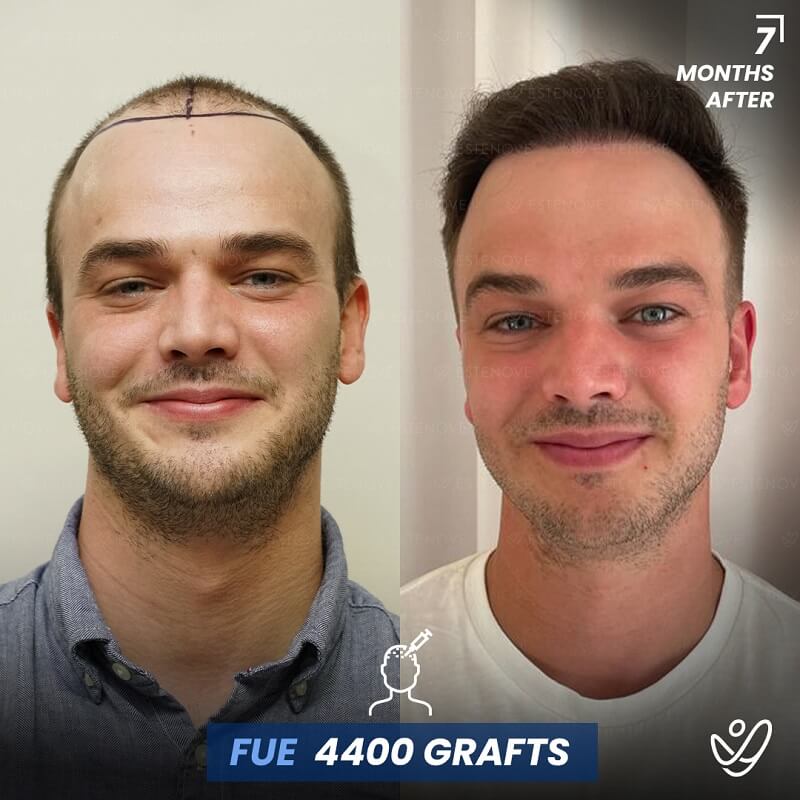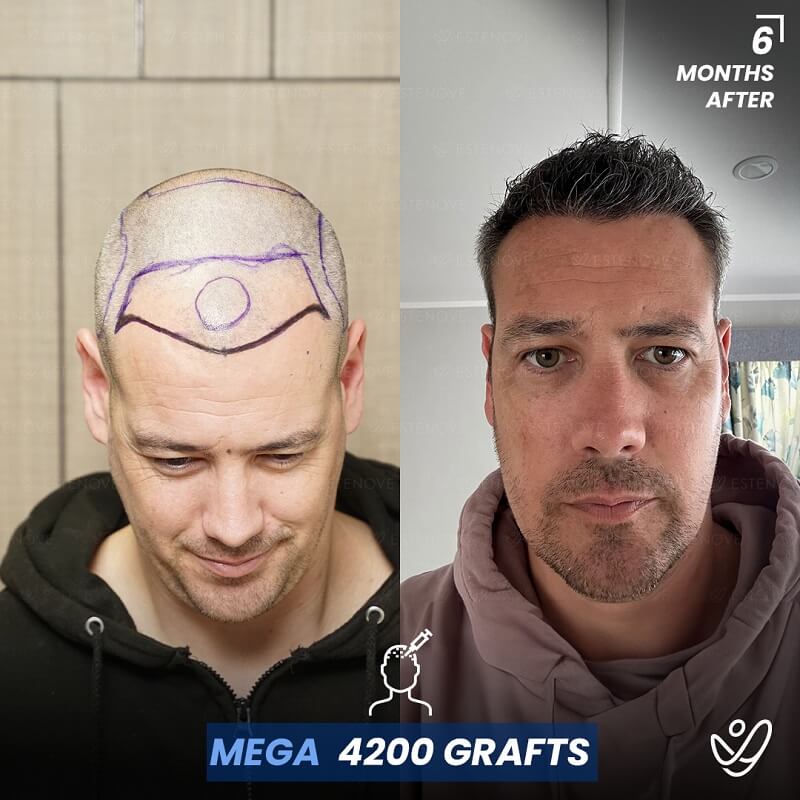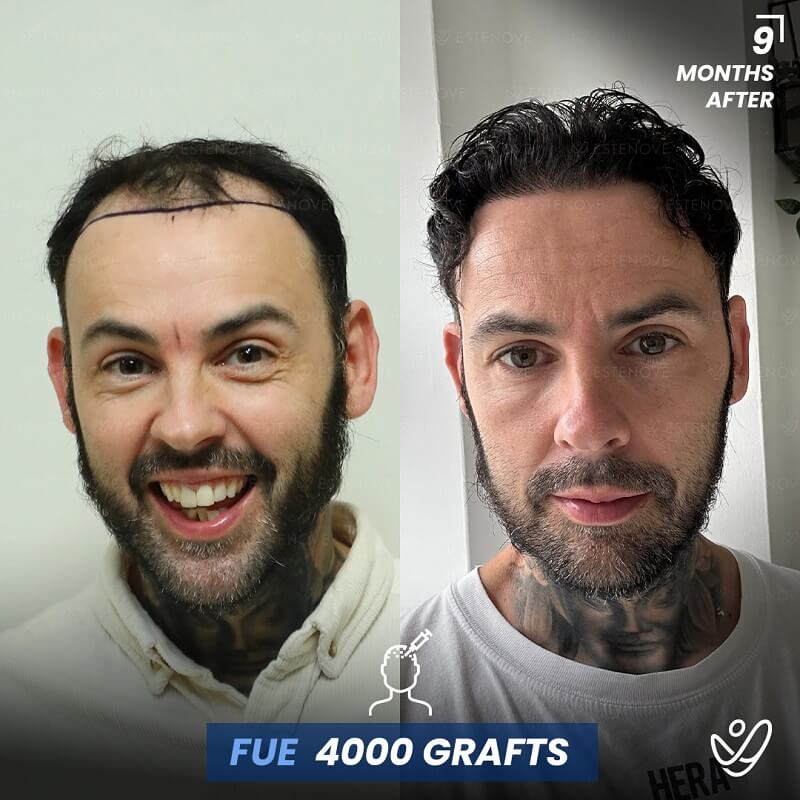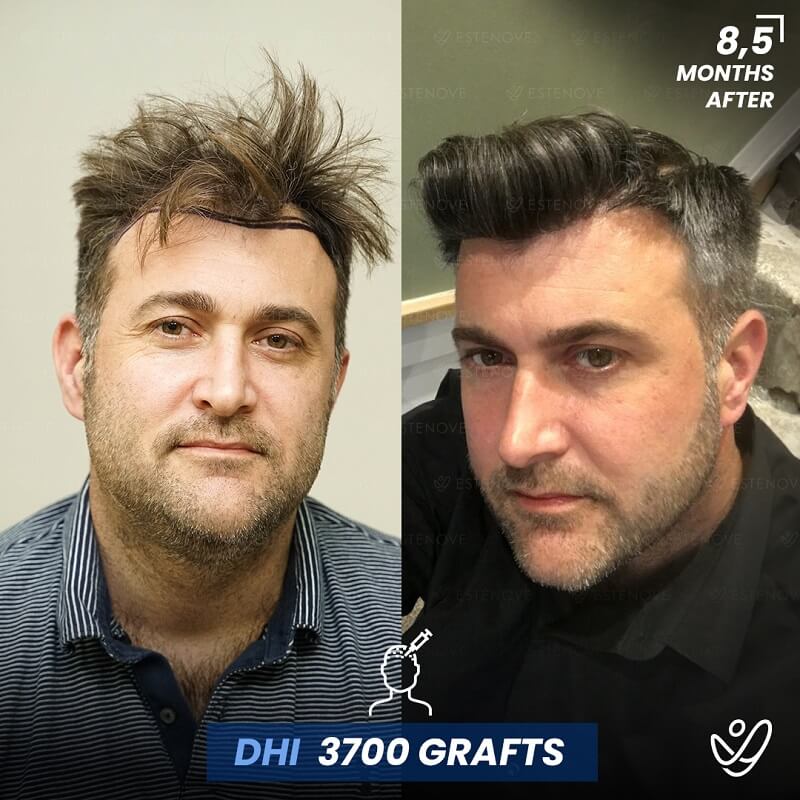Our team of experienced consultants are here to help you, fill in your details and we can start talking about your treatments.
BOOK FREE CONSULTATION
In recent years, there has been a significant surge in the popularity of beard transplants among men. Whether it’s due to a lack of facial hair growth, scarring, or a desire for a fuller beard, more and more men are turning to hair transplantation techniques to achieve their desired look.
Fortunately, with the advent of advanced techniques like FUE (Follicular Unit Extraction) and DHI (Direct Hair Implantation), beard transplants have become a viable option for those seeking a fuller, more robust beard. These methods involve the transplantation of hair follicles from one area of the body to the beard area, resulting in natural-looking and long-lasting results.
Why Can’t I Grow a Beard?
Not every man can grow a beard. It is a fact. More often than not, it has a genetic background. Sometimes, the beard grows at a very slow pace, and the journey is not a pleasant one. Until there is substantial hair growth, the face looks very empty, with mild patches of hair here and there. Shape and texture-wise, the hair on the scalp does not differ from the facial hair. The facial hair is programmed such that it reacts to testosterone. Around puberty, the fine hair thickens. Ultimately it is all about genetics. Genetics also defines and controls when facial hair reaches its full potential.
However, the solution is quite simple and permanent too.
What is a Beard Transplant?
A beard transplant is a cosmetic procedure in which hair follicles are transplanted from one part of the body to the face to create or enhance facial hair growth. This is typically done using a technique called follicular unit extraction (FUE) but can also be accomplished with DHI as well, which involves removing individual hair follicles from a donor site (usually the back of the scalp) and then transplanting them to the beard area.
The procedure is usually performed under local anesthesia and can take several hours depending on the amount of hair that needs to be transplanted. Patients may experience some swelling and discomfort after the procedure, but this typically resolves within a few days.
Beard transplants are becoming increasingly popular, particularly among men who have difficulty growing a full beard due to genetics or other factors. The results of a beard transplant are generally permanent, and the transplanted hair can be treated and styled just like natural facial hair.
Stages of Beard Transplantation
1. Consultation
The first step is a doctor’s examination along with understanding the client’s requirements, needs and preferences as well as health checkups. The number of grafts is decided along with the place where the roots are planted. In the final stage of the consultation, the pattern for the beard and the mustache line is determined as per the client’s wishes.
2. Local anesthesia
This process eliminates pain and discomfort. The surgery is comfortable and reassures those who are averse to any surgery that involves needles. Anesthesia is applied to two areas – where the hair is borrowed and where the hair is to be planted.
3. Operation
The surgery consists of three parts. First, the roots are taken from the donor area. Then the channels are opened with a sapphire blade. Finally, the hair follicles are planted in the previously opened channels. The growth direction and the angle of the beard are decided. Thus, the beard transplantation process is completed.
4. Maintenance
Proper post-surgery care is critical to the success of the surgery. Ensuring proper dressing postoperative and following instructions on how to wash the beard is essential. First aid and special care creams ensure strong beard roots.
How to Choose the Right Style of Beard
Planning the right style of beard for your face cut is a much-needed activity. Add dimension and contrast to your face to highlight your features and look prim and professional. Pick the right beard, depending on your face shape.
1. Square Face
The square beard comes with a goatee style. It has precise lines that are near the cheekbones and helps highlight the square jawline. In this case, a short beard is recommended. Goatee beard and Royale beard make for excellent choices. Connecting the beard with the mustache is also recommended.
2. Round Face
Round beards are preferred by those round faces and a soft jawline. A Round beard also helps slim the face with the angled shave. Having a full beard will also help build a strong profile. Short boxed beards are a popular choice, followed by Balbo beard.
3. Oval Face
Oval-shaped faces are proportional and can be compatible with different beard styles. The oval beards include 3-day stubbles. Shorter beards that come with clearly defined beard lines are a good choice for oval faces.
4. Rectangular Face
For the rectangular face, mutton chops beard and chin strap style beards are trending ideas. The beard needs to be short on the bottom and longer on the side to showcase a clear facial structure. The hipster beard is also a recommended choice.
FAQ About Beard Transplant in Turkey
What is the most popular type of beard transplantation procedure?
The Follicular Unit Extraction (FUE) is the most popular beard transplantation procedure.
What to expect before beard transplantation surgery?
Vitamin C tablets for a week before the surgery are recommended. No anti-inflammatory tablets or alcohol is allowed either. Coffee should be stayed away from on the day of the surgery.
What is post beard transplantation care?
While it is a painless procedure, post beard transplantation care is critical. Listen to the doctor’s instructions clearly and follow the necessary diet along with the right antibiotics.
Who can adopt a beard transplantation procedure?
Men with male baldness, genetic issues related to hair growth and patchy beard growth sign up for a beard transplantation procedure. Those affected by injuries or burns also look up a beard transplantation procedure to make up for the lack of a healthy, thick beard.
When can I start shaving after the beard transplantation procedure
It is a painless procedure, and the signs that a beard transplantation procedure was done will subside within a week to ten days. Shaving can be resumed close to ten days after the beard transplantation procedure.
Can someone have a hair transplant at any age?
Technically, there is no age limit for hair transplants. So, hair transplant can be applied to everyone from 22 to 65 years of age. But we cannot say, all people in this age range can have a hair transplant. Therefore, the determinants are hair type, hair loss condition and the general health condition of the patient.
Does EsteNove offer a guarantee for hair transplantation?
Yes, we give a guarantee for after post-operative results, excepting health conditions or therapy that causes patients hair loss. In addition, patients should also follow the post-operative instructions given by the doctor.
How do I set up a consultation?
To set up a consultation with us, at first, you can leave us your contact information via our social media or website or send us an e-mail. Then our Health Assistants will contact you and our doctor will send you a special diagnosis report. In accordance with this report, when you come to our clinic, a pre-examination is performed in terms of compliance with hair transplant process.

